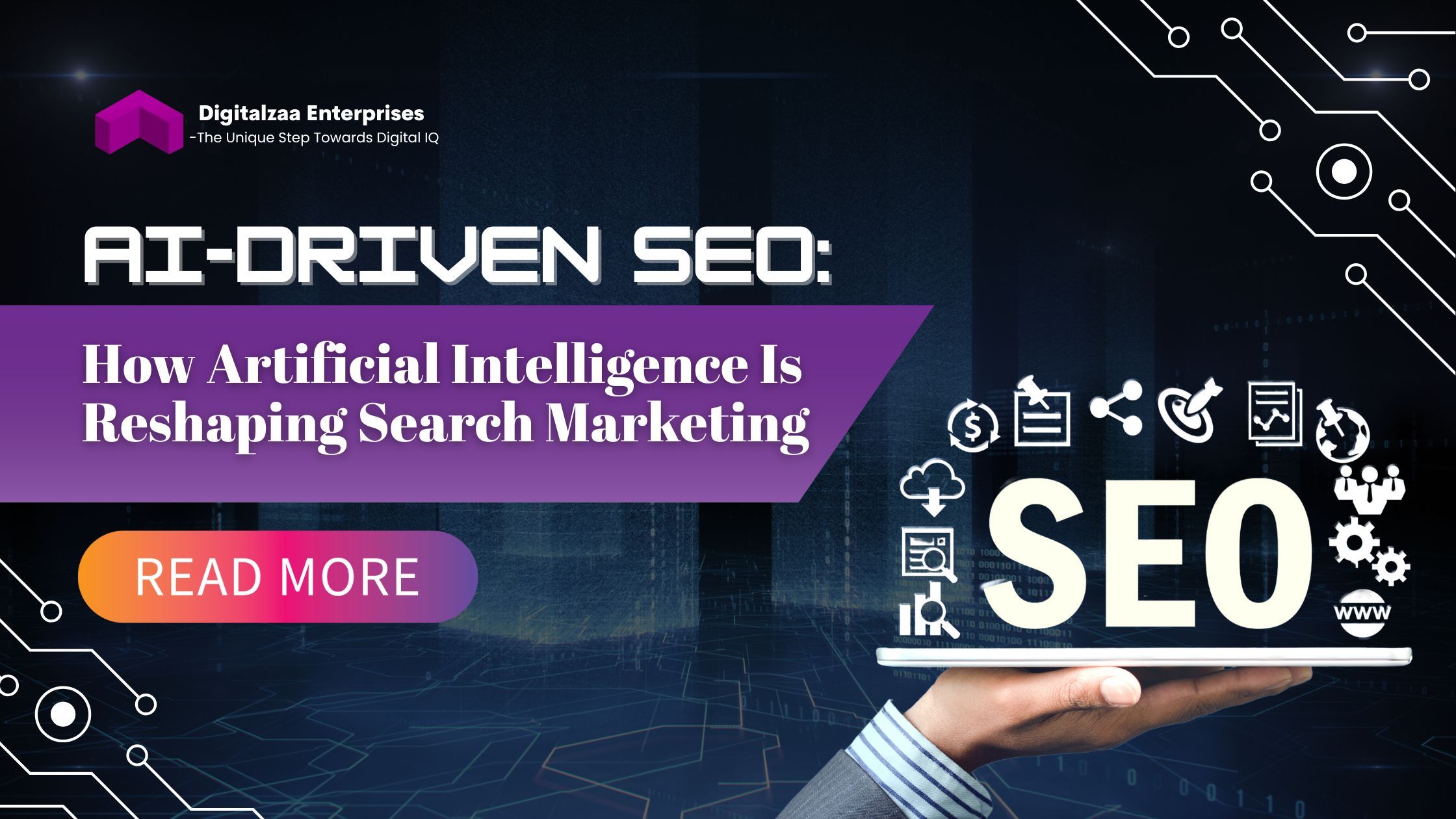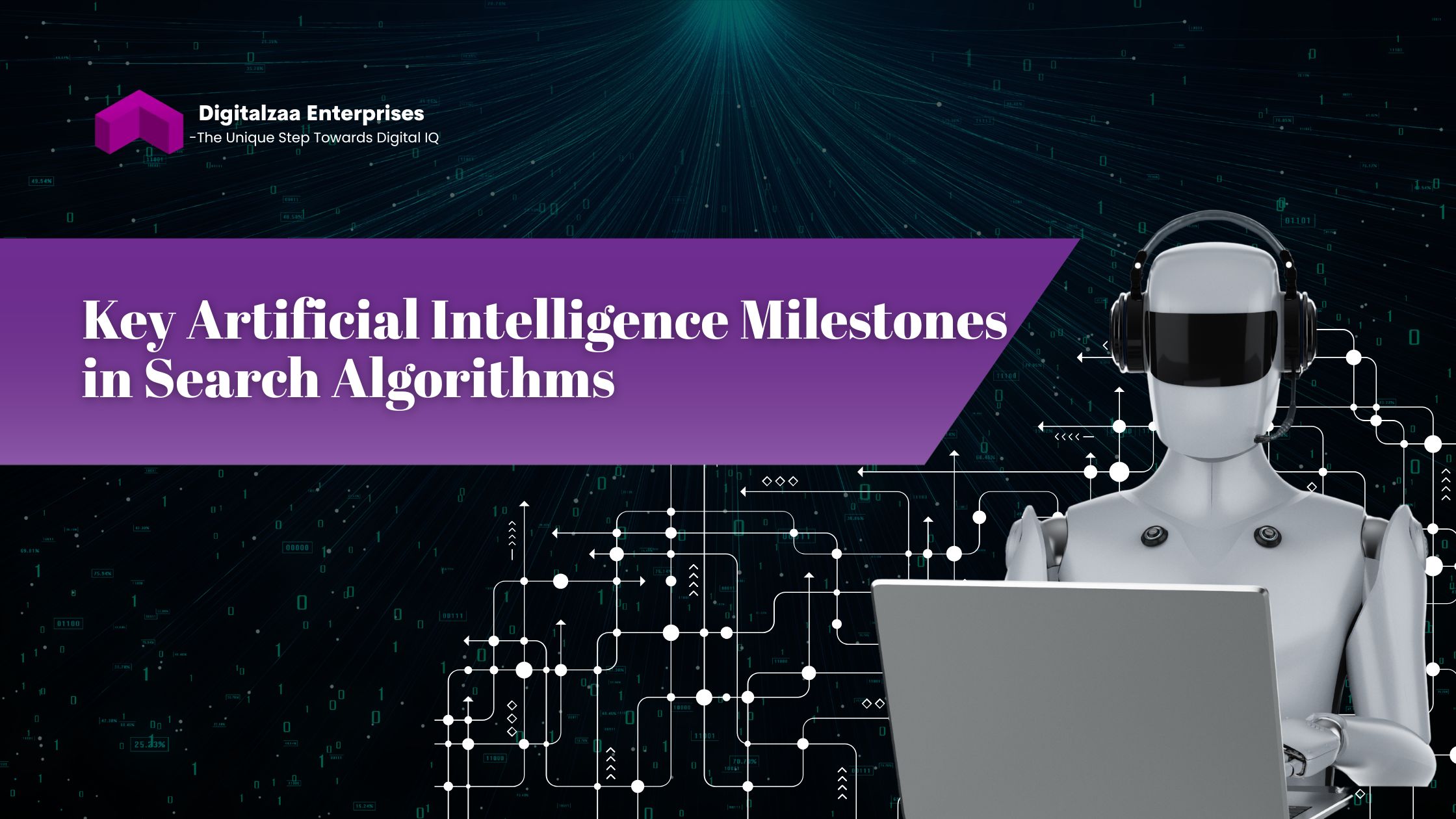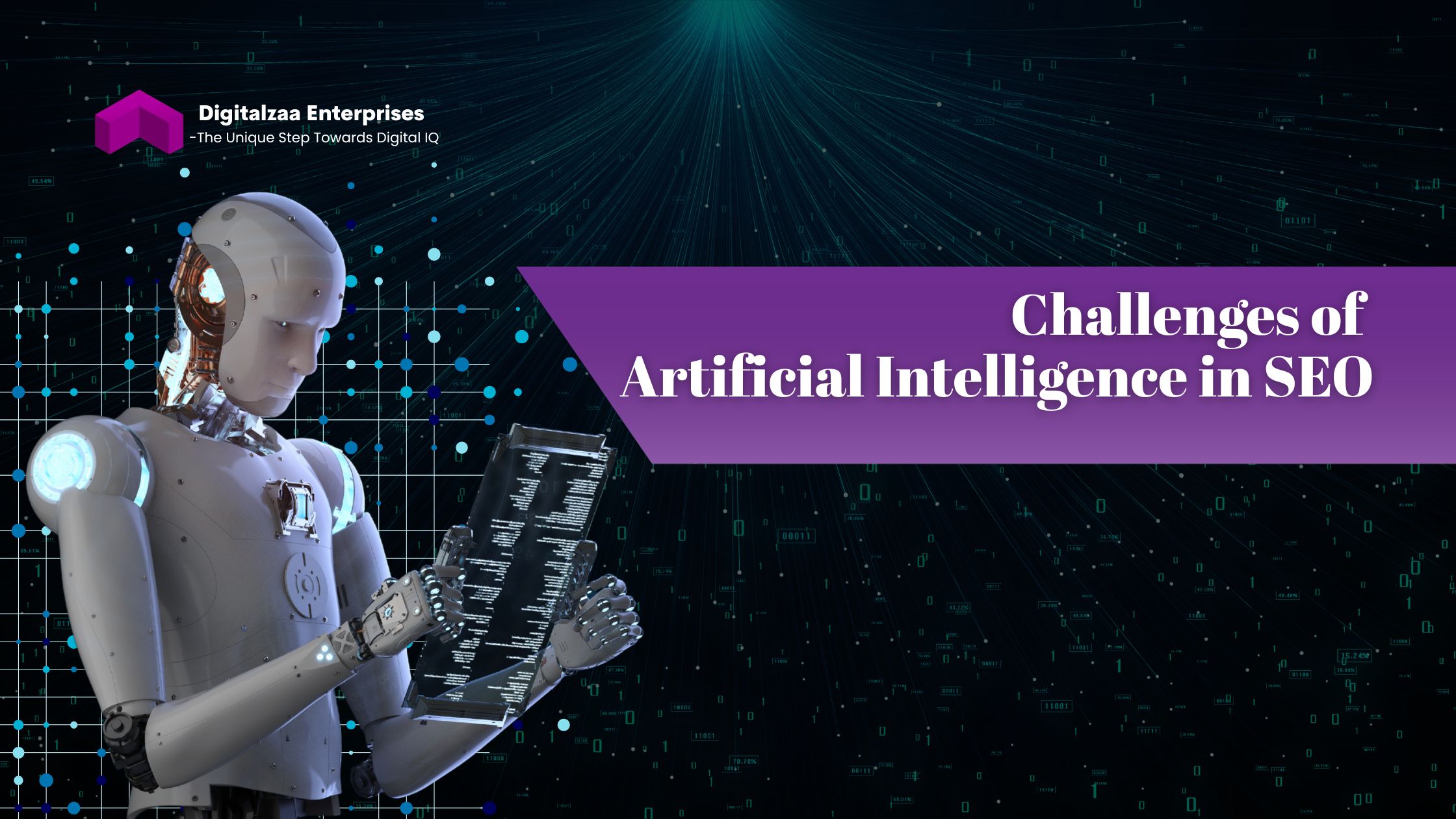AI-Driven SEO: How Artificial Intelligence Is Reshaping Search Marketing.

Search Engine Optimization (SEO) has evolved dramatically over the past two decades. What once revolved around stuffing keywords and building simple backlinks has become a complex, data-driven discipline. The game changer? Artificial Intelligence (AI). Today, AI isn't just an add-on to SEO—it’s the engine behind the most effective strategies in modern search marketing.
AI-driven SEO is revolutionizing how marketers conduct keyword research, create content, optimize websites, and engage with users. This blog explores how AI is reshaping search marketing, highlighting key innovations, benefits, and what the future holds. Major search engines like Google have steadily adopted AI to enhance how they interpret content and understand user intent. Over time, the algorithms have shifted from keyword-matching to context and semantics.
Key Artificial Intelligence Milestones in Search Algorithms:

- Machine Learning Models: Search engines now use machine learning to analyze user behavior and adjust rankings in real-time based on intent, context, and engagement.
- Natural Language Processing (NLP): Search engines understand queries more like humans, analyzing how words relate to each other and the sentiment behind them.
- Multilingual and Multimodal Understanding: Algorithms can now process not just text, but also images, audio, and video, offering more accurate and diverse search results.
These developments have significantly altered the SEO landscape. Content must now answer questions comprehensively, naturally, and with depth.
Artificial Intelligence-Powered Keyword Research and Content Planning
Traditional keyword research was often manual, slow, and focused on search volume metrics. AI makes this process smarter and faster.
AI Enhancements in Keyword Research:
- Semantic Keyword Clustering: AI groups related keywords to form comprehensive topic clusters, aligning better with how users search and how search engines evaluate relevance.
- Predictive Search Trends: AI algorithms forecast which keywords are gaining popularity, helping marketers capitalize on upcoming trends before competitors do.
- Voice and Long-Tail Queries: AI identifies natural-sounding, question-based phrases ideal for voice search, enhancing visibility in zero-click and conversational search results.
These capabilities enable marketers to craft content strategies that are more targeted, timely, and aligned with user intent.
Content Creation and Optimization with AI
AI is transforming content creation, offering tools that help marketers write faster while maintaining SEO quality and coherence.
Key Contributions of AI in Content:
- Automated Drafting: AI platforms generate initial drafts based on prompts, outlines, and keywords, saving hours of manual writing time.
- Real-Time Optimization: AI tools recommend content length, keyword placement, headings, and structure based on top-performing pages in SERPs (Search Engine Results Pages).
- Content Gap Analysis: AI audits websites to identify missing topics or underperforming pages, guiding content updates that align with user demand.
While AI handles volume and structure, human editors are still essential for adding nuance, emotion, and originality. The result is content that not only ranks well but also resonates with real people.
Technical SEO Made Easier with Artificial Intelligence
A technically sound website forms the backbone of SEO. AI makes technical SEO more manageable and precise.
Key Technical Enhancements:
- Automated Site Audits: AI tools crawl websites, identify broken links, duplicate pages, and suggest performance optimizations in real time.
- Crawl Efficiency: AI improves how bots access and prioritize content, ensuring that important pages are indexed faster.
- Schema Markup Suggestions: AI recommends and generates structured data like FAQ, product, or review schema, increasing the chances of earning rich results in SERPs.
By automating these tasks, AI reduces the burden on developers and SEO teams, allowing them to focus on strategy rather than troubleshooting.
Smarter Link Building with AI
Backlinks are still a core component of SEO, but building them can be time-consuming. AI makes this process more efficient and targeted.
AI Innovations in Link Building:
- Outreach Personalization: AI tailors outreach emails based on the recipient’s website, writing style, and previous collaborations, increasing success rates.
- Prospect Identification: AI scans the web to find relevant, high-authority websites for backlink opportunities.
- Link Quality Assessment: AI evaluates backlink quality based on multiple criteria such as domain authority, content relevance, and traffic metrics.
These advancements help marketers build better-quality links with less effort and more precision.
User Experience Optimization through AI
Search engines now consider user experience (UX) as a ranking factor. AI is instrumental in optimizing how users interact with content.
Key UX Improvements via AI:
- Behavior Analysis: AI monitors bounce rate, session duration, and click patterns to determine user satisfaction and suggests changes accordingly.
- Dynamic Content Personalization: Based on device, location, browsing history, and preferences, AI tailors on-page content to increase engagement.
- Accessibility Enhancements: AI tools automatically add image alt texts, video transcripts, and navigation aids to improve site accessibility.
Better UX leads to higher engagement, lower bounce rates, and ultimately, improved search visibility.
Preparing for Voice Search and Conversational SEO
With the rise of smart assistants, voice search is on the rise. AI enables marketers to adapt their SEO for this growing trend.
How AI Supports Voice SEO:
- Conversational Keyword Discovery: AI identifies how people naturally speak their queries, which differs from how they type, helping tailor content accordingly.
- Voice-Optimized Snippets: AI helps structure content in concise, conversational answers that are likely to be picked up by voice assistants.
- Interactive Chatbots: AI-powered chatbots guide users through websites, answer FAQs, and improve user retention and conversion rates.
Optimizing for voice search future-proofs your SEO strategy as the world moves toward more natural, conversational interactions with technology.
Visual and Multimedia SEO Powered by AI
AI also plays a significant role in enhancing visual search and multimedia optimization.
Key Visual SEO Functions:
- Image and Video Tagging: AI can automatically label and categorize images and videos, making them more discoverable by search engines.
- Compression and Performance: AI compresses multimedia files without compromising quality, improving page load times.
- Enhanced Metadata Creation: AI auto-generates alt texts, descriptions, and thumbnails that help content stand out in image and video search.
This expansion into visual content is vital as users increasingly consume information through formats beyond text.
Predictive SEO and Analytics
AI doesn’t just analyze past performance—it predicts the future, giving marketers a competitive edge.
Applications of Predictive SEO:
- Traffic Forecasting: AI predicts traffic trends based on seasonality, current events, and emerging search behaviors.
- Ranking Change Detection: AI spots sudden ranking drops or gains and correlates them with algorithm updates, enabling swift corrective actions.
- User Intent Shifts: By analyzing data, AI forecasts changes in consumer behavior and search intent, guiding proactive content adjustments.
These insights help businesses stay ahead of changes rather than simply react to them.
Benefits of AI-Driven SEO
AI-driven SEO offers tangible advantages that impact performance, efficiency, and scalability:
- Greater Efficiency: AI automates repetitive tasks, freeing up time for strategic decision-making.
- Higher Accuracy: Data-driven analysis eliminates guesswork and delivers precise optimization recommendations.
- Enhanced Personalization: Content can be dynamically tailored to user behavior and preferences.
- Real-Time Adaptability: AI helps teams pivot quickly in response to search trends or algorithm changes.
- Scalability: AI tools can manage large websites and SEO campaigns with hundreds or thousands of pages effectively.
Challenges of Artificial Intelligence in SEO

Despite its power, AI isn’t without limitations:
- Over-Reliance: Blindly following AI recommendations can lead to generic, over-optimized content.
- Quality Control: AI-generated content may lack depth, creativity, or accuracy if not properly edited.
- Data Privacy: AI relies on large datasets, raising concerns about user data usage and ethical marketing.
- Algorithm Black Box: AI systems are often opaque, making it hard to understand how decisions are made or rankings are influenced.
Combining AI efficiency with human creativity and oversight is key to overcoming these challenges.
The Future of AI in SEO
Looking ahead, AI’s role in SEO will only expand:
- Search Experiences Will Become Conversational: AI-driven assistants will deliver search results in dialogue formats.
- Visual and AR SEO Will Rise: AI will enable new types of search interaction through AR, visual recognition, and immersive content.
- Search Engines Will Offer AI Summaries: Search results may increasingly include AI-generated summaries, reducing traditional organic clicks.
- Cross-Channel Optimization: AI will unify data from SEO, paid ads, email, and social for holistic search marketing strategies.
Conclusion
Artificial Intelligence is fundamentally changing the way SEO is done—from how keywords are selected to how content is created, optimized, and analyzed. AI brings speed, accuracy, and scale to the SEO process while enhancing user experience and personalization.
However, success in AI-driven SEO depends on balance. While AI handles data-heavy and repetitive tasks, human marketers must provide strategy, creativity, ethics, and emotional intelligence. As AI continues to evolve, it will remain a cornerstone of modern SEO. Those who embrace its potential—while maintaining a human-centered approach—will be the leaders in tomorrow’s search landscape.


